BOONE, N.C. — Appalachian State University sophomore Kara Snow, of Raleigh, spent her childhood immersed in astronomy — from reading a glow-in-the-dark book on the Earth’s solar system during her daily bus rides to school, to watching meteor showers with her father. The summer before she began college, she took a chance that has since opened doors to endless opportunities — most recently a North Carolina Space Grant internship at the North Carolina Museum of Natural Sciences.
That summer, Snow read abstracts by professors in Appalachian’s Department of Physics and Astronomy and discovered the research of professor Daniel Caton, director of the university’s Dark Sky Observatory.
She asked Dr. Caton if he would allow her to join his research team, and, much to her surprise, he agreed. With Caton’s guidance, she imaged her first binary star system (two stars orbiting each other) before beginning her first year at Appalachian. Now, she is majoring in physics with a concentration in applied physics, with a minor in mathematics.
“Getting into research is like getting into cold water: You have to jump in or else you’re never going to do it,” Snow said. “As long as you go in with a passion and a drive to learn — and have someone there willing to answer your inevitable questions — you can do it.”
The mentorship and research opportunities Snow receives from Caton exemplify Appalachian’s competitive advantages. “Appalachian has a small university feel with large university opportunities,” Snow said. “Class sizes here are smaller and professors take the time to get to know you. I love the teachers and peers I am surrounded by.
“It is a supportive environment, rather than competitive. The undergraduate research experiences at Appalachian cannot be found anywhere else,” she added.
Caton helped Snow attend the 2018 North Carolina Astronomers’ Meeting at Guilford Technical Community College, where she heard an inspiring presentation by physicist Dr. Gabriela González.
“(González) was monumental in my decision to combine my passion for astronomy and my love for physics,” Snow said. “It was humbling to sit through her talk and not know anything she was explaining. You take those moments and you learn from them. Resilience is the key to success. Giving yourself the grace to allow for an imperfect result is not only freeing but educational as well.”
Snow recently concluded her first year at Appalachian, and her growing list of accomplishments and accolades now include:
- North Carolina GlaxoSmithKline Foundation Women in Science Scholar.
- Intern at the North Carolina Museum of Natural Sciences’ Astronomy and Astrophysics Research Lab.
- CAS Corp member, student ambassador for the College of Arts and Sciences.
- President of demonstrations for the university’s Dark Sky Observatory.
- Volunteer at the Dark Sky Observatory’s monthly public access event.
In May, Snow was selected as one of 11 students from across the state to be awarded a coveted North Carolina Space Grant internship. She is spending the summer working in the glass-walled Astronomy and Astrophysics Research Lab of the North Carolina Museum of Natural Sciences.
“I received the grant to do research with Dr. Rachel Smith (an associate professor in the Department of Physics and Astronomy at Appalachian),” Snow shared. “(Our lab) is visible through glass, and I often get kids tapping on the glass. The children light up when we smile at them. That’s one of my favorite parts of the day.”
Snow is working with OpenSpace — a NASA-funded software designed to visualize the entire known universe — to import data on the asteroid belt, and completing extensive literature searches about meteorites. Notably, she also assists in public outreach, including creating a tour using OpenSpace in honor of the upcoming 50th anniversary of the first man on the moon.
“Using OpenSpace, I have enabled boulder rendering so that you can see 3D models of the boulders created from pictures taken on the Apollo 17 mission,” Snow explained.
She added, “I came into this internship knowing virtually nothing, but it has made the learning experience that much better. Through internships, you learn how to work independently while also exploring your interests. I am excited to see where my learning continues to take me.”
After graduation, Snow plans to attend graduate school and hopes to one day work at one of the two U.S. sites that compose the Laser Interferometer Gravitational-Wave Observatory (LIGO).
“(I want to) add something to the limited knowledge we have of general relativity,” Snow said. “The theory of everything, a theory that connects quantum field theory with general relativity, is something I think could help us solve the questions of dark matter, dark energy and an accelerating-expanding universe.”
Snow seeks to dedicate her life to research, but she remains keenly aware of the need for awareness about STEM disciplines. “I also want to teach, do public outreach (and) show people all the mysteries the universe has to offer.”
What do you think?
Share your feedback on this story.
About the Department of Physics and Astronomy
The Department of Physics and Astronomy’s curriculum has an applied nature that includes a core of fundamental physics courses and laboratory experiences. The department prepares graduates for a variety of scientific, teaching or engineering professions, as well as future educational endeavors. Learn more at https://physics.appstate.edu.
About the College of Arts and Sciences
The College of Arts and Sciences (CAS) at Appalachian State University is home to 17 academic departments, two centers and one residential college. These units span the humanities and the social, mathematical and natural sciences. CAS aims to develop a distinctive identity built upon our university's strengths, traditions and locations. The college’s values lie not only in service to the university and local community, but through inspiring, training, educating and sustaining the development of its students as global citizens. More than 6,800 student majors are enrolled in the college. As the college is also largely responsible for implementing App State’s general education curriculum, it is heavily involved in the education of all students at the university, including those pursuing majors in other colleges. Learn more at https://cas.appstate.edu.
About student research at Appalachian
Appalachian State University encourages faculty-mentored student research, which provides students with the opportunity to work side by side with faculty on meaningful research or creative endeavors. These projects often result in presentations, performances or exhibitions at regional, national and international conferences and events. Students who engage in research are able to apply knowledge from the classroom into real-world experiences and learn how to problem-solve, effectively communicate and analyze complex issues. Appalachian’s Office of Student Research (OSR) was established in 2005 to expand the opportunities necessary for undergraduate and graduate students to engage in research and creative activities at Appalachian. Learn more at https://osr.appstate.edu.
About Appalachian State University
As a premier public institution, Appalachian State University prepares students to lead purposeful lives. App State is one of 17 campuses in the University of North Carolina System, with a national reputation for innovative teaching and opening access to a high-quality, cost-effective education. The university enrolls more than 21,000 students, has a low student-to-faculty ratio and offers more than 150 undergraduate and 80 graduate majors at its Boone and Hickory campuses and through App State Online. Learn more at https://www.appstate.edu.
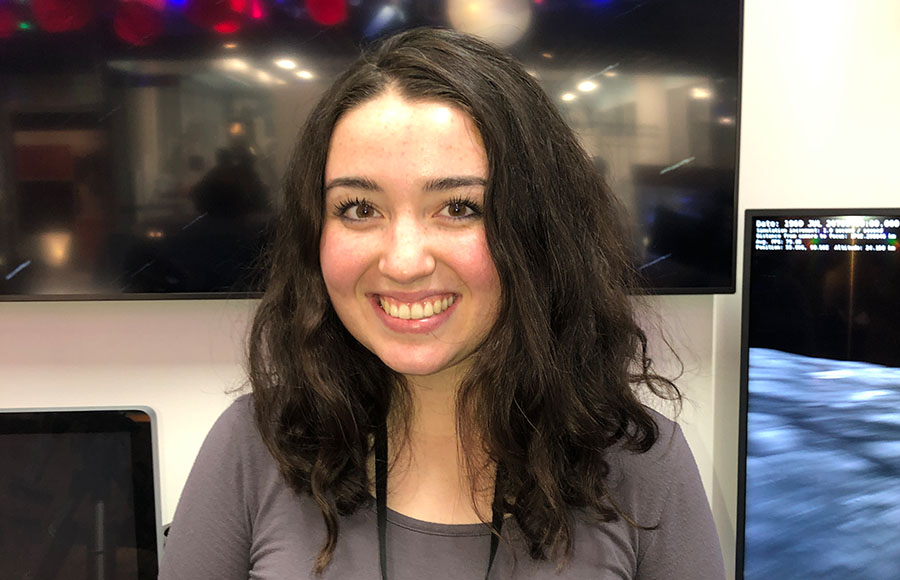
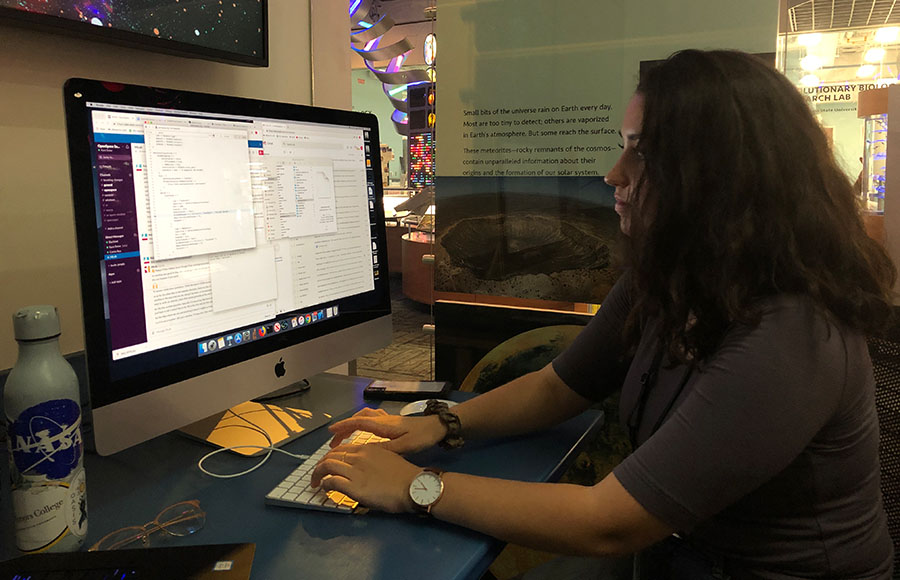
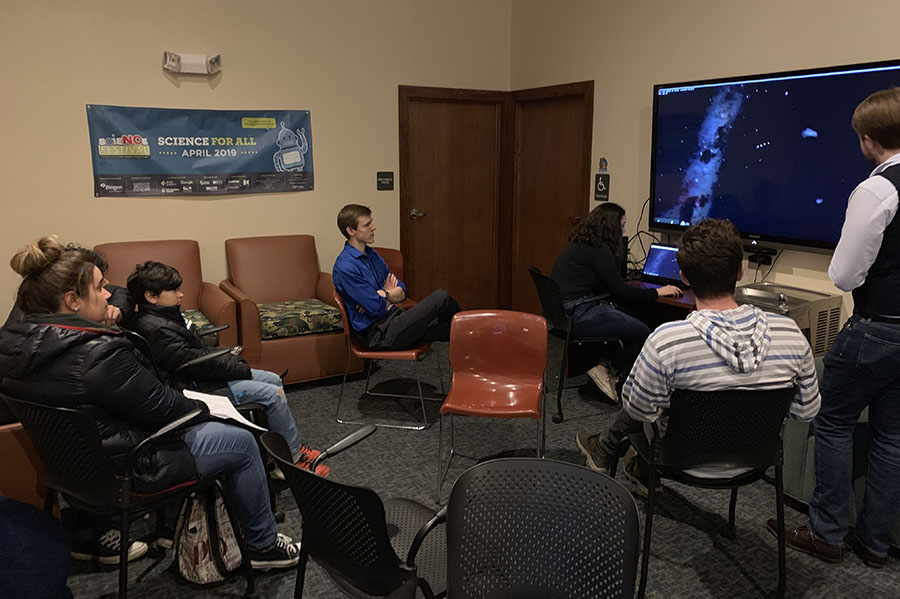
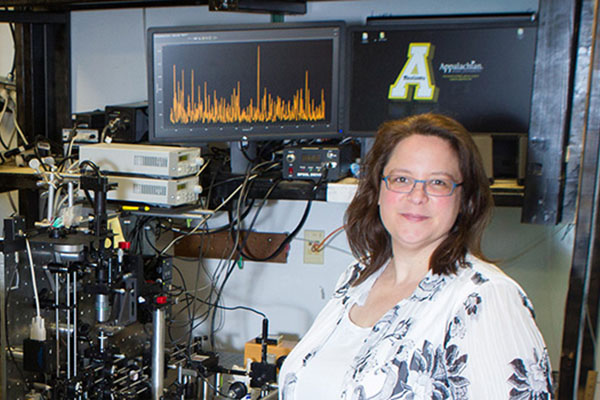
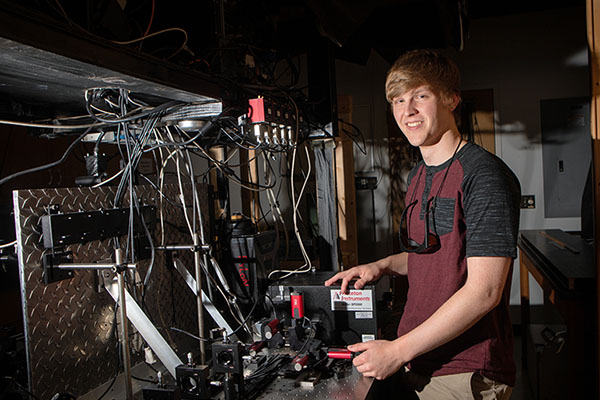



![How NCInnovation Is Rethinking Economic Development in North Carolina [faculty featured]](/_images/_posts/2026/02/rethinking-economic-development-600x400.jpg)








